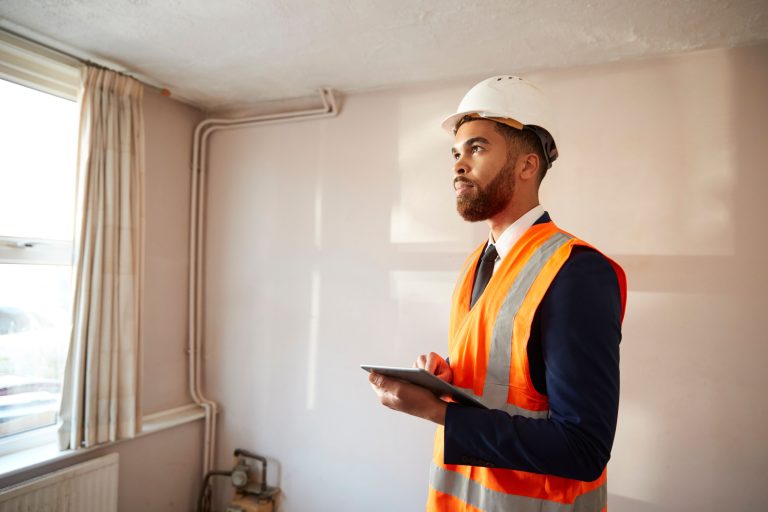Buying a home is a significant investment, but the steps leading up to it define the quality of your investment.
One key stage in this process is the home inspection, where the home’s hidden complications come to light. Knowing the inspection process is crucial to ensure you’re making an informed decision and safeguarding your investment.
Home inspection explained
A home inspection is an evaluation process where a home inspector thoroughly evaluates a property’s condition, examining its structure, systems, and potential issues. This assessment ensures informed decisions regarding investments. Inspections are pivotal for buyers, offering insights and negotiation leverage.Who is a home inspector?A home inspector is a professional individual with a trained eye for evaluating a property’s overall condition. Their expertise lies in examining a home’s elements, including its foundation, electrical systems, plumbing, and roofing, to uncover potential issues, safety hazards, or necessary repairs. A home inspector provides an unbiased assessment, offering future buyers, sellers, or homeowners an understanding of a property’s actual state.
When does a home inspection take place?
A home inspection generally occurs after an offer has been made and accepted during the period outlined in the purchase agreement. Buyers often include a condition for a home inspection clause within this timeframe to assess the property’s condition. This inspection usually takes place before the deal gets finalized.
Things to consider before hiring a home inspector:
Before hiring a home inspector, here are crucial points to consider:
- Verify Licensing: Ensure the inspector holds certification and licensing as required.
- Assess Experience: Inquire about their experience, years in the field, number of inspections conducted, and specific expertise relevant to your property type.
- Accreditation Check: Look for accreditation by the Better Business Bureau or other industry associations. Check for any complaints against the inspector or their business.
- Sample Report Review: Request a sample inspection report to ensure it’s complete, easy to understand, and includes visuals and explanations.
- Insurance Coverage: Check for professional liability insurance. Though not mandatory, it safeguards against potential issues.
Where will I find a home inspector?
In Canada, locating a home inspector can be done through various reliable sources. One of the most effective methods is to look for referrals from trusted sources within your circle, such as mortgage agents, friends, or family who have recently undergone home inspections. Professional organizations like the Canadian Association of Home & Property Inspectors (CAHPI) maintain directories of certified inspectors, offering a detailed list of professionals in your area. These resources ensure you connect with competent and certified inspectors who stick to industry standards.
What is the cost of a home inspection in Canada?
The cost of a home inspection in Canada typically ranges from around $300 to $700 on average, depending on various factors such as the size and location of the property, as well as the scope of the inspection. It’s crucial to consider this expense as an investment and understand the property’s condition before making a purchase/sell decision.
What’s the duration of a home inspection?
A home inspection spans around 2 to 3 hours, subject to variations based on the property’s size, age, and complexity. Large and old homes require more time for inspection, possibly extending to 4 hours or more. Another cause of the variation is how thoroughly the inspector examined each aspect of the property.
What does a home inspector look for?
A home inspector carefully checks various aspects of a property. Their inspection covers critical areas like the foundation, basement, attic, walls, windows, heating, cooling, plumbing, and electrical systems. They leave no stone unturned in examining these elements, aiming to provide a proper assessment.
What are the things not covered under a home inspection?
A home inspection only extends to certain areas. Separate structures like pools, sheds, hot tubs, or saunas are typically excluded from the standard inspection. Also, cosmetic details such as paint or window coverings are not included. Fireplaces get a visual check, but an in-depth inspection of their functionality might not occur. Anything not easily accessible or hidden within walls won’t be part of the inspection. Water quality or supply also falls outside the home inspector’s domain.
The national standard for home inspections:
| National standards ensure quality and consumer confidence in products and services. In 2016, the CSA Group, a non-profit standards organization, introduced the CSA Home Inspection Standard. This standard covers crucial aspects of a home inspection. Assuring consumers of a thorough inspection aligned with the best practices outlined in national guidelines. |
The Bottom Line
A home inspection is your shield in home buying, revealing potential issues before sealing the deal. A detailed home inspection report packed with visuals empowers you to navigate the purchase wisely. Although a flawless report is rare, fear not; it’s your bargaining chip. Based on the report and faults found, you can renegotiate the home’s price because fixing the issues will cost you. The sellers aren’t obligated to pay for repairs, but negotiations are fair game. Stand firm. If they don’t change their position, you have options. Take on repairs yourself, or gracefully walk away. It’s your investment, your terms.


